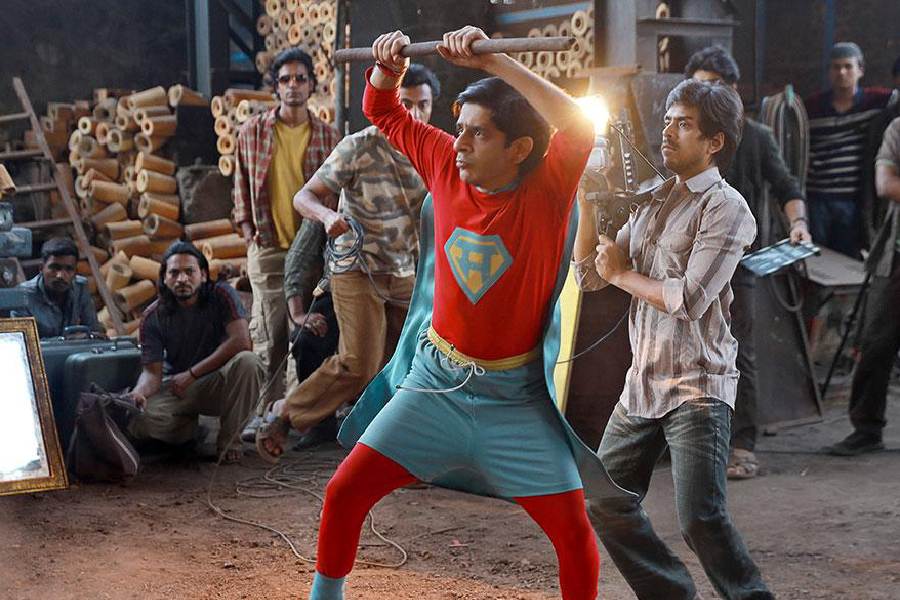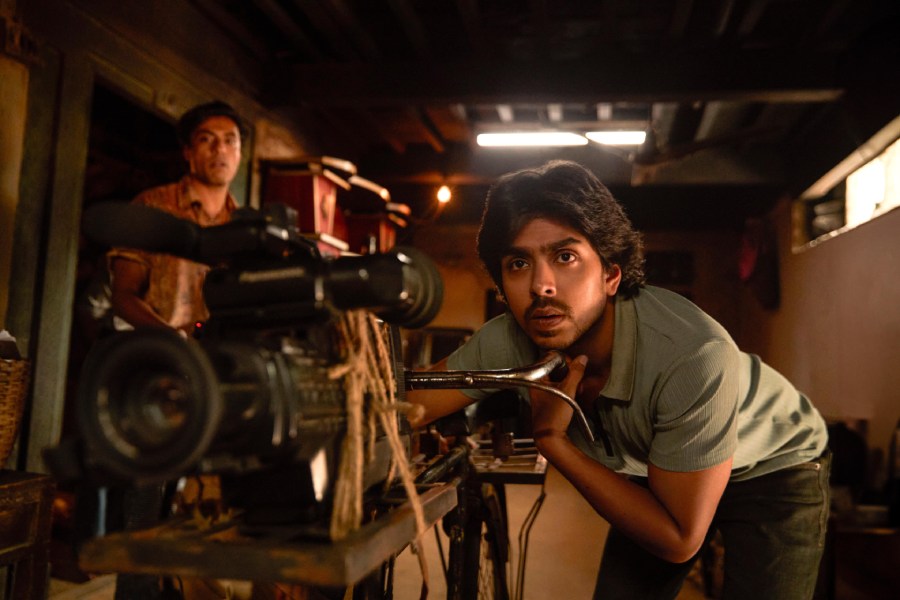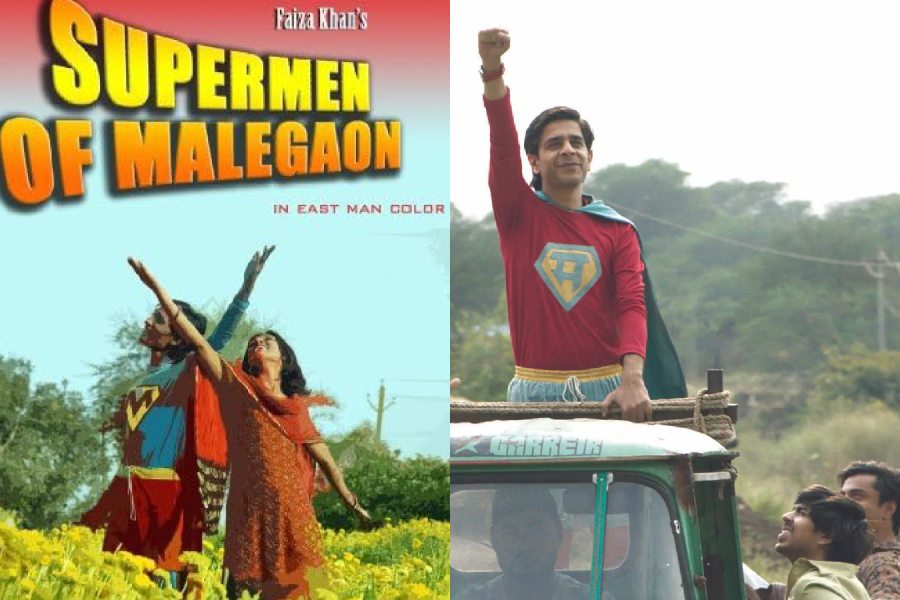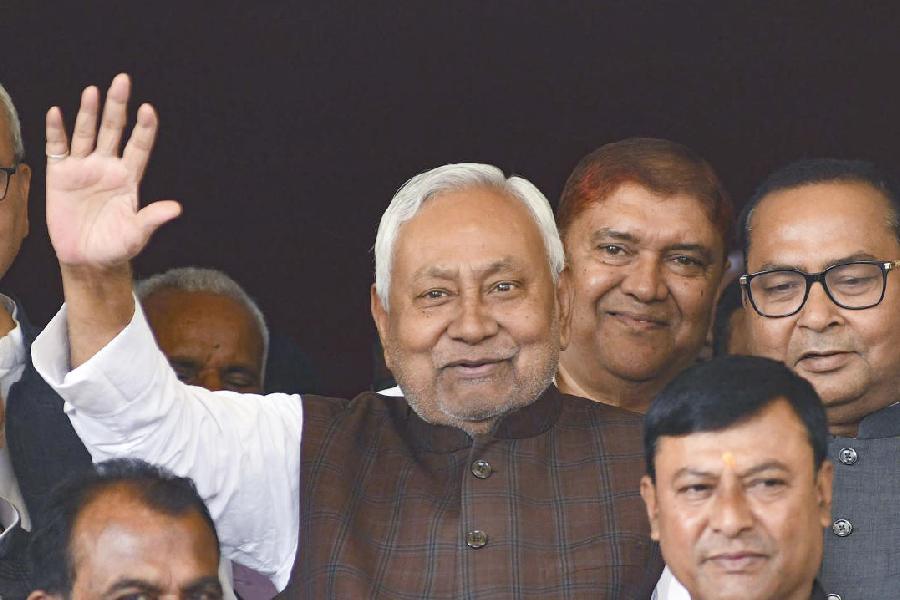I can’t remember the last time I sat in a theatre long after the credits rolled. That’s the rare effect of a film like Superboys of Malegaon, directed by Reema Kagti. Part of you is too overwhelmed by the narrative to move. Part of you wants to honour every single person that came together to create something so beautiful.
In an era where the film industry struggles with an ‘adaptation problem’ and new intellectual properties rarely make it to the big screen, Superboys of Malegaon achieves the impossible by being an adaptation that champions original stories. Reema Kagti and Varun Grover deserve endless praise for adapting Faiza Ahmad Khan’s 65-minute 2012 documentary Supermen of Malegaon into a deeply layered and richly flavoured two-hour feature.

'Superboys of Malegaon' stars Adarsh Gourav, Vineet Kumar Singh and Shashank Arora
Superboys of Malegaon follows a bunch of misfits from a small town in Maharashtra, bound together by their love for cinema. When their local theatre is shut down for piracy, they vow to make something original. Of, by and for Malegaon.
Their first project is a parody of the classic, Sholay, shot on a shoestring budget against all odds. The film succeeds, making an unlikely local star of director, Nasir Shaikh (Adarsh Gourav). The success comes at a cost though. The writer, Farogh (Vineet Kumar Singh) finds himself wronged after Shaikh spurns his original detective screenplay for another formulaic parody of Sippy’s Shaan, leading to a painful fallout. Their conflict lays bare the eternal struggle between originality and commercials, a paradox Shaikh conveniently forgets when Shaan becomes his second hit.
But the tensions have only begun. As Shaikh’s popularity soars, his relationships with the rest of the crew sour. The failure of his next film plunges him into financial ruin, leaving Shaikh all alone, barring his friend Shafique (Shashank Arora). A mill worker secretly harbouring a dream to watch himself on the big screen one day, Shafique feels grateful to even get close to filmmaking.
Years after bidding cinema goodbye, direction re-enters Shaikh’s life when Shafique is diagnosed with cancer. The gang reunites to fulfil his cinematic dream, making way for Malegaon’s very own Superman.
Beyond its compelling plot and complex characters, Superboys of Malegaon excels because it treats all stakeholders of Indian cinema with equal empathy. The filmmakers, torn between artistic integrity and financial survival. The writers who labour a story into being over years, without receiving due credit. And the audience, who long to see a reflection of themselves on the screen.

Adarsh Gourav essays the role of Nasir Shaikh, who packed theatres by making loca l Malegaon-centric parodies of Bollywood classics
Kagti captures the raw, unfiltered spirit of Malegaon, reinforcing the importance of telling stories that move beyond the South Bombay-Delhi bubble and embrace the chaotic vibrancy of India. Malegaon is a motif, because the film is a larger commentary on how a billion people live vicariously through moving images.
From a group of amateurs discovering the power of creation through match-cuts on a VCR to the ceeti-taalis that make movie-watching a community experience in local theatres, every cinephile will find themselves reflected in some frame. It is a warm hug to all those who find solace inside a theatre, for whom each Friday is synonymous with self-care. For when Shafique finally watches himself take flight on the big screen, it heals something far more pressing within him than just the tumour.
Much like Shaikh’s films, the very existence of Superboys of Malegaon defies all rationality. But that is precisely why we believe in the magic of cinema. For all the pain, heartbreak and suffering, when the lights dim and the projector hums to life, reality dissolves into the dark. And in that moment, all we can see is the light.










